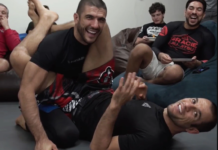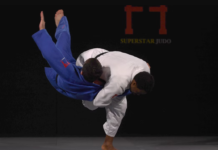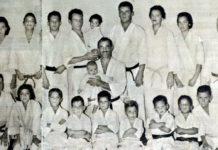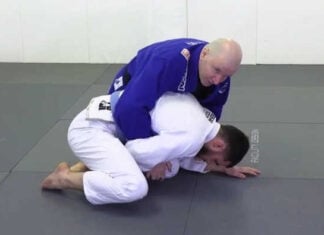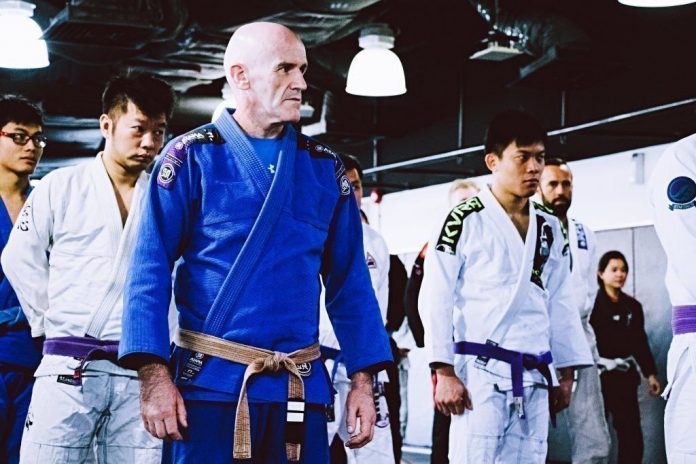
How often should you be training BJJ? The answer is not a simple one. There’s a reason you can’t go for it every day, nor train once a week. Read on to find out how to achieve balance and progress with the optimal frequency for training Brazilian Jiu-Jitsu.
When we start training BJJ, most of us are torn. On one side is the fun aspect of training, that pull that BJJ has. On the other is our ego getting a constant battering. The more you train as a beginner the less you seem to be able to resist. Going further, once they have certain experience grapplers tend to either overcommit to training BJJ or slack off completely. As time goes by people tend to find their sweet spot, but is it the best fit for them? What is the best frequency for training BJJ? The answer is a complex one and it is one the same for everyone.
The key is understanding a couple of things. First, you need to be clear about what level you’re at and what your goals are. Secondly, you need to be aware of the optimal training frequency for your level. Training BJJ requires a careful balance. Train too much and you’ll eventually burn out due to diminishing returns and injuries. Train too little, on the other hand, and you’ll be stuck without progress. An exact amount of training frequency varies at an individual level, matching their goals. If your goal is to be a competitor above all, you have to approach training BJJ as a marathon. You need to keep things sustainable and well-balanced. If you want to learn the art without competing though and have a full-time job, you’ll need a different approach. Let’s take it to step by step.
Optimal Frequency For Training BJJ
Beginner grapplers are always concerned with one question. How often should they train Jiu-Jitsu? If they come from other mainstream sports like baseball or basketball they’re probably used to daily practices. In grappling martial art, though a beginner training every day is often more than their bodies and minds can handle. A complete beginner, training BJJ 5 or 6 days a week is probably a grappler that won’t be around much longer. The types of neurological adaptations that Jiu-Jitsu requires are very delicate. In those terms, these are the general guidelines for training BJJ:
2 days per week
Enough frequency to maintain your technique. You won’t learn much, and what you learn is going to be extremely slow. Not at all advisable for competitors. This is the minimum time you should consider spending without regressing.
3 days per week
This is the commonly accepted sweet spot. It is enough to maintain technique and even add sharpness to transitions and movement patterns. Still not really ample to learn at a great pace, but guaranteed progress nonetheless.
4 days per week
This is the recommended weekly frequency for training BJJ. Apart from technical maintenance, this both adds sharpness and builds instincts. If you’re looking to develop a flowing style of Jiu-Jitsu there are no shortcuts. Four sessions a week is mandatory for anyone with hopes of competing.
There are options to train 5 or more days per week. As you’ll see later this is where your goals need to be in balance with your actual needs. Training more than 4 times a week is not for everyone and can have negative feedback. Careful thought has to be given to rest and recovery as well. In fact the more you train, the more you’ll need to recover. As a final note, if you get down to training more than 3 days per week, try to ensure one of those days is an open mat. The open mat experience can be worth more than two classes, so do not miss it. This way you can further your learning and build a well-connected and complete game. Putting everything together is the only way forward, and the open mat is a great place to do it.
Absolute BJJ Beginners
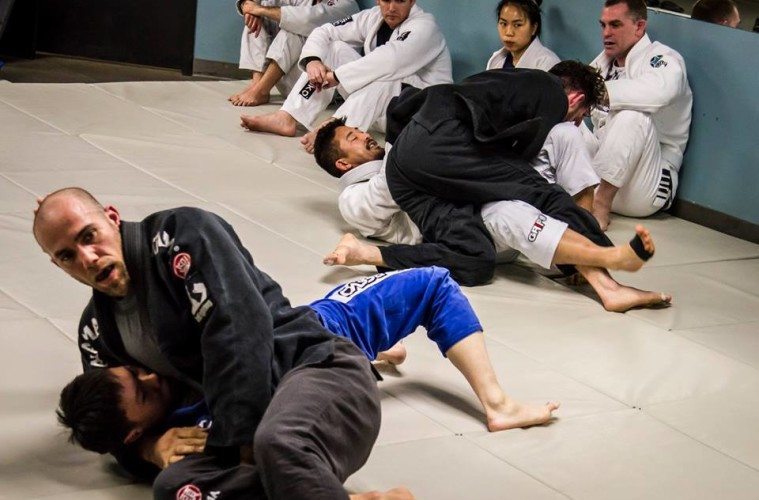
As a beginner, training more than 2 days per week just means more material. This translates to more moves that you probably won’t be able to retain. Depending on your coordination, your BJJ knowledge won’t notably improve. Keep things clear and simple until you get at least six months under your belt.
The more consistent you are with your training, the more information will get organized on top of previous information. This means you’ll be able to absorb new knowledge without stressing your system. Once the body gets used to basic movement patterns, you can move on to more complex positions. When you can successfully string a couple of these basic moves together, you can think about the next step.
One day per week isn’t nearly enough to improve o retain useful information. Each day is going to feel like the first day of class all over again. Starting over repeatedly is a poor way to go about a journey as long as Jiu-Jitsu. If it is only occasionally, getting to the mat only once per week is acceptable. This, however, has to be viewed as a short-term solution during busy time schedules.
A Year Of Training
After you survive your first year of training BJJ, you can look to add training sessions. 2 to 3 days per week is now the new sweet spot. You can add the third training session after a certain period of mastering the basic movements of the sport. Don’t delay it too much or you might regret it. Most people are ready to go to 3 x week somewhere around the 6-month mark. This can directly aid in making much faster advancements in your learning curve.
OF course, there are those that cannot make it to BJJ more than two times a week. When life gets in the way, you can pull it off without a third session. It also going to be fairly difficult though and progress is going to take longer. However, everyone’s improvements should be optimal for their own lifestyle and abilities.
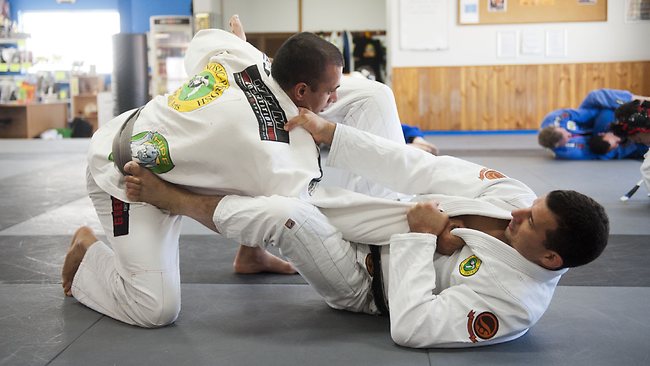
Advanced Students
Finally, when you have at least a blue belt, you can really go for it! Training BJJ up to 3 to 5 days per week now is now optimal. This is the frequency where most students typically find their sweet spot for training days. Furthermore, once you know the best for you, you’ll mostly stick to it forever. This doesn’t mean jumping straight to 5-6 days per week. The same holds true as before, burnout and overtraining are always a concern. Use the strategy as before, and gradually add in training days.
Once you go past the 3 days per week mark, remember that recovery starts to be a major part of the puzzle. A grappler must stress the system during training for improvement. Stress results in the body adapting, which in turn brings progress. However, you must also focus on recovery between sessions. The more you train, the more your body is going to need recovery. Individual factors like age come into play here. Never push your body past the bring because recovering from overtraining is a long and tedious process. Once you overexert you’re going to stall your progress. Avoid this by sticking to as many days of training BJJ as you can successfully recover from.
Of course, if you aim to become the next huge name in grappling competition, you’re going to need a bit more dedication. Competition preparation may have you even twice in a day. This, however, should be organized with extreme caution. The best approach here is one of the training camps. Before a competition train hard and specific for 8-12 weeks. You can even train every day, but remember that this is not sustainable. Once your competitive period is over, return to your sweet spot to keep progressing.
Related Articles:
Wrestling Conditioning Drills For Brazilian Jiu-Jitsu
The Strength and Conditioning For BJJ Competitors
How to Get The Most Out Of a BJJ Open Mat With These Strategies
25 Reasons Why You Don’t Progress in Jiu-Jitsu As Fast As You Can
An Unusual Method To Help You Learn BJJ Moves Faster
Old Man Jiu-Jitsu TIPS
The BEst DVD and Digital Instructionals for BJJ White Belts


